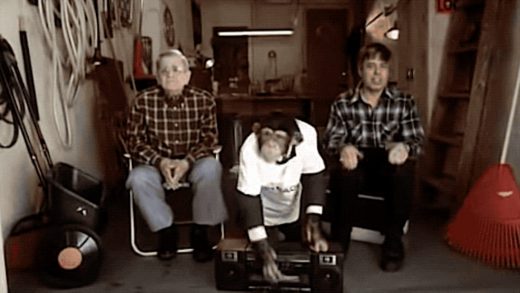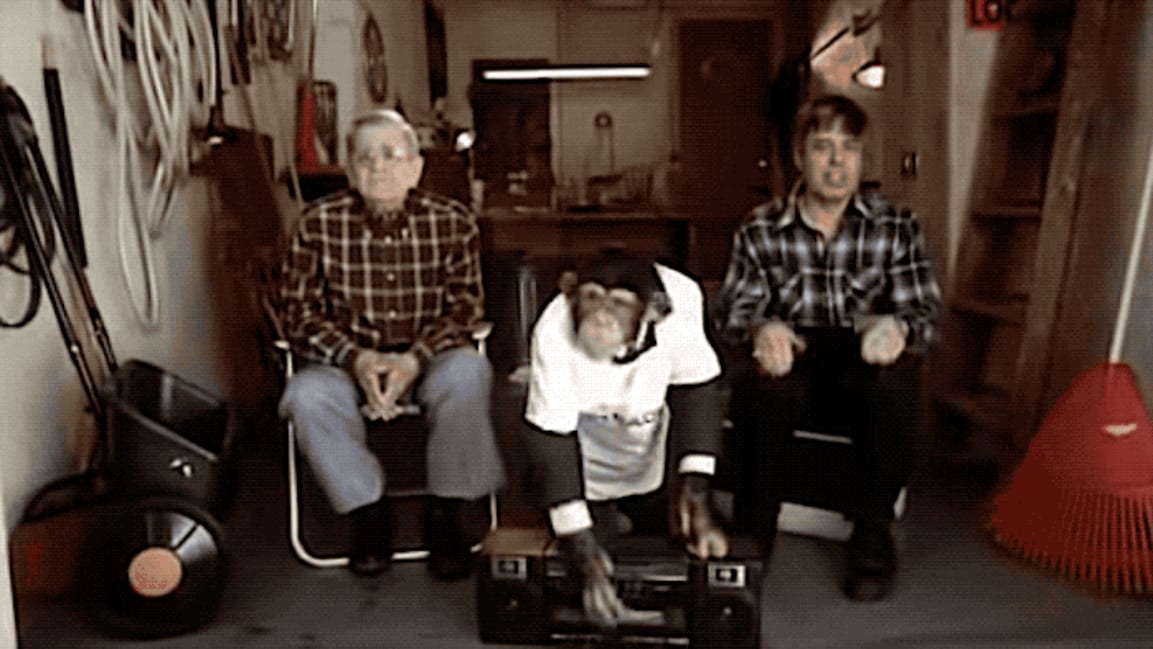20 years ago, the dot-coms took over the Super Bowl
Of all the dot-com brand commercials in the 2000 Super Bowl, Etrade’s was the best. Others were funny, yeah (I mean, “Cat Herders,” amirite?), but Etrade’s dancing monkey was a living embodiment of what we were seeing at that very moment, right in front of our eyes. Brands were taking millions of dollars, putting it in a pile, dousing it with gasoline, and paying for the opportunity to toss a match on it in front of 100 million people.
It was a year when brands at the Super Bowl all of a sudden had a distinctly 21st-century suffix attached to their names—Pets.com, Monster.com, OurBeginning.com, Epidemic.com, Autotrader.com—and on and on, DOT-COM. It was a new century, and there were 17 dot-com brands in this big game, compared to two in 1999, which is almost as many web-based brands in one game that have bought Super Bowl ads in this last decade.
That’s why Super Bowl XXXIV isn’t actually remembered most for the game played between the St. Louis Rams and Tennessee Titans, but for these new advertisers that crashed the commercial party. The first major brands born online were getting their first taste of mainstream marketing’s highest peak. THIS WAS THE FUTURE. The internet had arrived. Business would be transformed forever.
Sadly, though, for many of these companies, the realities of basic traditional accounting still stood firm. The dot-com Super Bowl was the high-water mark for this first wave of web-based companies, most of which wouldn’t exist within just a few years (or sooner) after the Rams lifted the Vince Lombardi trophy.
Take OurBeginning.com, an online retailer of wedding invitations, birth announcements, stationery, and more. The company bought airtime for four ads for about $4 million, which was $2 million more than the company’s total revenue for the nine months before the game. CEO and founder Michael Budowski told CNN at the time that it was a move that made perfect sense. “The exciting part is we have a very solid business model. The Super Bowl not working . . . well, how can it not really work? It is part of our branding campaign; it’s not going to make or break us as a company,” he said.
Less than a year later, the Orlando-based company filed for Chapter 7 bankruptcy protection blaming “insurmountable financial problems.”
Dot-com to DTC
Of course, the dot-com era has long been a punchline for its extravagant spending and valuations. Pets.com alone became a joke and punchline all in one brand name. But look past the laughter and it starts to look eerily familiar—like a more current trend in businesses built on marketing hype but short on traditional metrics like, say, profit. Ever since Warby Parker stylishly strolled onto the scene, direct-to-consumer (DTC) has become a catch-all phrase for any new business that begins as a digital retailer aiming to disrupt an establishment consumer category. Toothbrushes, groceries, socks, razors, and, of course, mattresses. And like the attendees to the Dot-com Super Bowl party, some are predicting a similar reckoning for our DTC present.
We got a peek at it when Casper filed its S-1 on January 10, revealing it spent $423 million on marketing on about $358 million in sales. On his Pivot podcast with Kara Swisher, Scott Galloway called Casper “a cute retailer with 20% negative operating margins, and not scaling. They should’ve sold it, they missed the window.”
Between Casper, the dumpster fire that is WeWork, and the ups and downs of companies like Uber and Lyft, perhaps the most surprising thing is there aren’t more DTC commercials at the Super Bowl. While plenty of web-based brands have been to the big game over the last two decades—Airbnb, Apartments.com, Squarespace, among others—Dollar Shave Club might be the only DTC to do it, back in 2016. Five months later, it was acquired by Unilever.
Brand consultant Mark Ritson wrote in a Marketing Week column last week that no matter how beautiful the marketing poetry, an S-1 submission is ultimately written in plain, monochrome prose. “Numbers, charts and buckets of cold, harsh reality are finally poured over a DTC bullshit machine that has been running, unencumbered by reality or fact, down in the corporate basement for years,” he wrote. “Despite bold claims and disruptive manifestos, most of these DTC champions continue to fail the single most important test of marketing and business. Not cool ads. Not storytelling. Not conference speeches. Not even satisfied customers. Making money.”
So let’s yuck it up and celebrate the 20th anniversary of the Dot-com Super Bowl (check out most of the ads below), but let them be a continual reminder that our own era may be holding a sock puppet of its own.
Pets.com “Please Don’t Go”
EDS (Electronic Data Systems) “Cat Herders”
Computer.com “Mike and Mike”
Autotrader.com “We Need A Car”
Epidemic.com “Bathroom”
Lifeminders.com “The Worst Commercial”
Netpliance
OurBeginning.com
OnMoney.com “Paper Monster”
E-Stamp “Time Saving Tips”
Kforce.com
MicroStrategy “Stock Alert”
Encyclopedia Britannica “Questions”
Fast Company , Read Full Story
(8)



